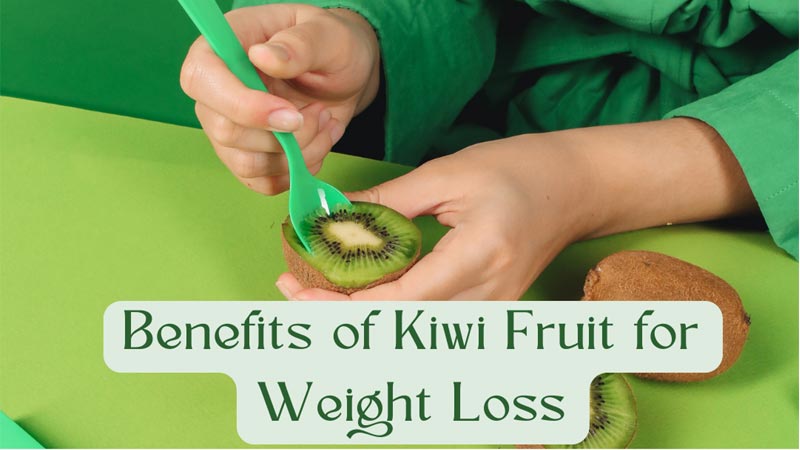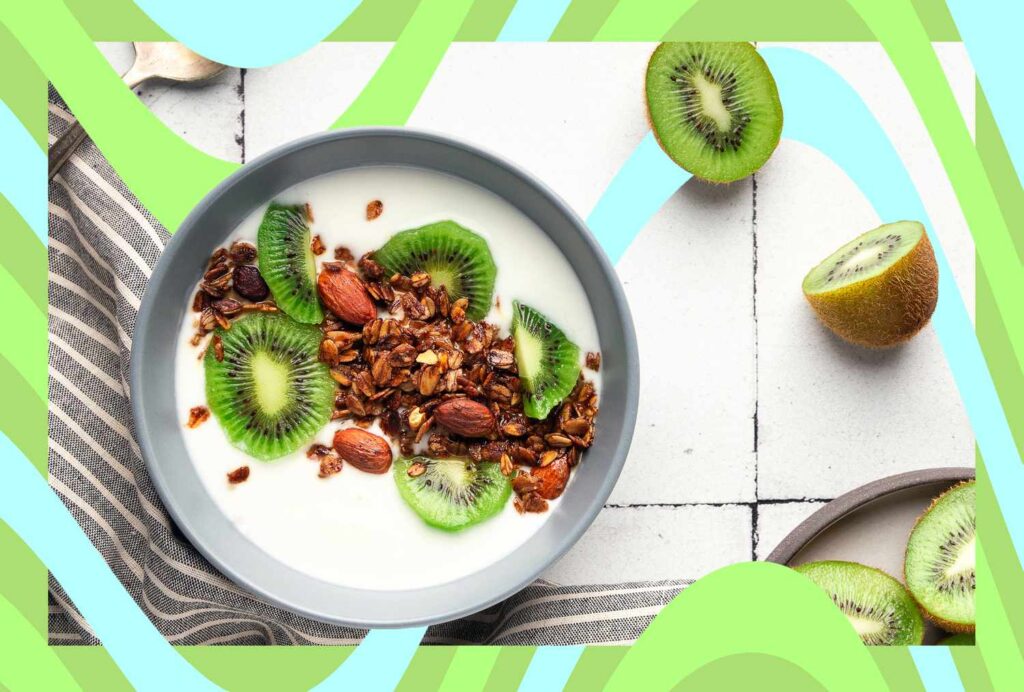Kiwi fruit, often simply called kiwi, is a small, fuzzy powerhouse of nutrition that originates from China but gained its name from New Zealand’s iconic bird. This vibrant green (or sometimes gold) fruit isn’t just a tasty addition to your fruit salad; it’s packed with vitamins, minerals, and other beneficial compounds that can significantly enhance your health. Whether you’re looking to boost your immune system, improve digestion, or support heart health, kiwi’s nutritional profile makes it a superstar in the world of superfoods. In this article, we’ll dive deep into the top health benefits of kiwi nutrition, backed by science, and explore how you can incorporate this fruit into your daily routine. For more fruit-based recipes, check out our guide to tropical fruits on Tastetrove.
Understanding Health Benefits can motivate you to make better lifestyle choices. Eating fresh fruits and vegetables provides multiple Health Benefits for the body. Regular exercise offers significant Health Benefits for the heart and mind. People often explore natural remedies because of their proven Health Benefits. Maintaining a balanced diet ensures long-term Health Benefits for overall wellness. Focusing on positive daily habits leads to lifelong Health Benefits you can enjoy.
The Nutritional Profile of Kiwi: A Closer Look
Before we explore the benefits, let’s break down what makes kiwi so nutritious. A single medium-sized kiwi (about 80g, peeled) provides approximately 39 calories, making it a low-calorie snack option. It’s low in fat (0.4g) and protein (0.9g), but shines in carbohydrates (8.5g, including 8.2g of natural sugars) and fiber (2.0g). Kiwi is particularly rich in essential vitamins and minerals: it delivers a whopping 47mg of vitamin C (that’s more than an orange!), 232mg of potassium, and smaller but significant amounts of vitamin E, vitamin K, folate, and copper.
Exploring different foods reveals surprising Health Benefits that support the body. Many herbs and spices provide natural Health Benefits for digestion and immunity. Regular walking is one of the easiest ways to gain daily Health Benefits. Drinking enough water has countless Health Benefits for skin and energy. People focus on superfoods because of their powerful Health Benefits. Simple lifestyle changes can unlock lifelong Health Benefits for overall well-being.
In a 100g serving of raw green kiwi, you’ll find 64 calories, 14g carbs, 3g fiber, and impressive daily value percentages: 83% for vitamin C, 9% for vitamin E, 34% for vitamin K, 7% for folate, 15% for copper, and 4% each for potassium and magnesium. What sets kiwi apart is its blend of antioxidants, including carotenoids like lutein, zeaxanthin, and beta-carotene, as well as polyphenols such as caffeic and chlorogenic acids. These compounds contribute to kiwi’s high antioxidant capacity, often surpassing that of apples, grapefruits, or pears. Additionally, kiwi contains actinidin, a unique enzyme that aids in protein digestion, and has a low glycemic index (GI) of around 39 for green varieties and 48 for gold, making it suitable for blood sugar management.
This nutrient-dense profile—high in vitamin C (92.7mg/100g in green kiwi and 161.3mg/100g in gold) and fiber, with beneficial potassium and low sodium—earns kiwi a spot as one of the most nutrient-rich fruits. Studies highlight its exceptional vitamin C content, which is bioavailable and supports various bodily functions. Now, let’s delve into the top health benefits that stem from this impressive nutrition.
Fruits and vegetables are packed with essential Health Benefits that boost wellness. Daily exercise delivers lasting Health Benefits for strength and endurance. People turn to meditation because of its mental Health Benefits and stress relief. Staying hydrated offers powerful Health Benefits for skin, digestion, and energy. Whole grains are known for their unique Health Benefits that support heart health. Choosing a balanced lifestyle ensures lifelong Health Benefits for mind and body.

1. Boosts Immune Function with Vitamin C Power
One of the most celebrated benefits of kiwi is its ability to supercharge your immune system, primarily due to its extraordinarily high vitamin C content. A single kiwi can provide over 80% of your daily vitamin C needs, which is crucial for protecting cells from oxidative damage, supporting collagen production, and enhancing immune cell function. Vitamin C acts as an antioxidant, neutralizing free radicals and reducing inflammation, which can help ward off infections.
Research shows that regular kiwi consumption can elevate plasma vitamin C levels effectively. In a 2012 study involving males with low vitamin C, eating just one kiwi daily for six weeks raised levels to healthy ranges, while two kiwis achieved saturation. Another study found that consuming two kiwis daily for four weeks improved neutrophil function, a key part of the immune response, in young men with marginal vitamin C status. For the elderly, four gold kiwis daily reduced the severity and duration of upper respiratory infections.
Kiwi’s immune benefits extend beyond vitamin C, thanks to vitamins E and K, folate, carotenoids, and fiber, which collectively may reduce the incidence of colds and flu, especially in vulnerable groups like children and seniors. If you’re prone to seasonal illnesses, adding kiwi to your diet could be a natural way to stay healthier. For immune-boosting recipes, try our Kiwi Immunity Smoothie on Tastetrove.
2. Enhances Digestive Health and Relieves Constipation
Kiwi’s fiber content—about 3g per 100g, with a mix of soluble and insoluble types—makes it a fantastic ally for digestive health. Insoluble fiber adds bulk to stool and promotes regularity, while soluble fiber helps regulate blood sugar and cholesterol. Kiwi’s fiber retains water exceptionally well, improving stool consistency and reducing transit time through the gut.
Clinical studies support kiwi’s role in alleviating constipation. In a trial with 75 people suffering from chronic constipation, eating two kiwis daily for four weeks improved stool frequency, consistency, and reduced straining, outperforming psyllium or prunes in some aspects with fewer side effects. Another study showed that two green kiwis daily increased stool frequency and fecal bulk in individuals with constipation or IBS-C, without adverse effects.
The enzyme actinidin further aids digestion by breaking down proteins in the stomach and small intestine, making kiwi useful for tenderizing meat or improving protein absorption from meals. Kiwi is also low in FODMAPs, reducing bloating and discomfort for those with IBS. Its prebiotic effects foster beneficial gut bacteria, enhancing overall gut microbiota. For gut-friendly ideas, explore our High-Fiber Recipes section.
3. Supports Heart Health and Blood Pressure Control
Eating kiwis can contribute to a healthier heart by addressing key risk factors like high blood pressure, cholesterol imbalances, and oxidative stress. The fruit’s potassium content helps counteract sodium’s effects, relaxing blood vessels and lowering blood pressure. In a 2022 randomized trial, healthy participants who ate two kiwis daily for seven weeks saw significant reductions in systolic blood pressure. A study with male smokers found that three kiwis daily for eight weeks reduced blood pressure and platelet aggregation, potentially lowering atherosclerosis risk.
Kiwi may also improve lipid profiles: some research indicates it increases HDL (good) cholesterol, decreases triglycerides and LDL (bad) cholesterol, and enhances the total cholesterol to HDL ratio. In hyperlipidemic subjects, two kiwis daily for eight weeks showed these benefits. Antioxidants like carotenoids further protect against heart disease by reducing oxidative damage, as evidenced by reviews linking high carotenoid intake to lower mortality risks. For more on heart-healthy eating, visit American Heart Association.
4. Promotes Eye Health with Protective Carotenoids
Kiwi is a good source of lutein and zeaxanthin, carotenoids that accumulate in the retina and protect against age-related macular degeneration (AMD) and cataracts. These antioxidants filter harmful blue light and combat oxidative stress in the eyes.
Regular kiwi intake may help maintain eye health as you age. Studies suggest that diets rich in these carotenoids reduce the risk of vision impairments. Combined with vitamin C and E, kiwi’s nutrients provide comprehensive eye support. If you’re interested in vision-boosting foods, check our Eye Health Foods Article.
5. Aids in Better Sleep Quality
Surprisingly, kiwi can help you catch more Z’s. Eating two kiwis one hour before bed improved sleep onset, duration, and efficiency in adults with sleep disturbances, according to research. This may be due to antioxidants, folate, and serotonin precursors that regulate sleep cycles. Vitamin C’s role in neurotransmitter synthesis could also contribute to reduced fatigue and better wellbeing.
6. May Alleviate Asthma Symptoms
The high vitamin C and antioxidants in kiwi may ease asthma symptoms by reducing inflammation and oxidative stress in the airways. Regular consumption has been linked to fewer wheezing episodes and improved lung function in some studies.
7. Supports Skin Health and Collagen Production
Vitamin C is essential for collagen synthesis, which keeps skin firm and youthful. Kiwi’s antioxidants fight free radicals that cause premature aging, while vitamin E provides additional skin protection. Eating kiwis can enhance skin hydration and elasticity from within.
8. Helps with Blood Sugar Management
With its low GI, kiwi doesn’t spike blood sugar levels, making it ideal for diabetes management. Studies show it reduces glycemic response when eaten with carbs, thanks to fiber and polyphenols. It’s also keto-friendly with low net carbs.
9. Enhances Iron Absorption and Prevents Anemia
Kiwi’s vitamin C boosts non-heme iron absorption from plant sources. A 16-week study found that gold kiwi with iron-fortified cereal increased serum ferritin in women with low iron stores.
10. Provides Antioxidant Protection Against Chronic Diseases
Kiwi’s array of antioxidants, including polyphenols and carotenoids, may lower the risk of chronic conditions like cancer, diabetes, and obesity by reducing oxidative damage. A review of 69 studies linked high carotenoid intake to reduced heart disease and cancer risks.
How to Incorporate Kiwi into Your Diet
To reap these benefits, aim for 1-2 kiwis daily. Eat them fresh, add to salads, or blend into smoothies. Try our Kiwi Salsa Recipe for a zesty twist. Kiwi pairs well with yogurt, oatmeal, or as a meat tenderizer due to actinidin.
Be mindful of allergies, as kiwi can cause reactions in some people. Always consult a doctor if you have concerns.
Conclusion
Kiwi’s nutrition offers a multitude of health benefits, from immune boosting to heart protection and beyond. This humble fruit proves that good things come in small packages. Incorporate kiwi into your meals for a delicious health upgrade. For more nutrition tips, browse Tastetrove’s Nutrition Hub. External resources like Healthline’s Kiwi Guide provide further reading.
3. Supports Heart Health and Blood Pressure Control
Eating kiwis can contribute to a healthier heart by addressing key risk factors like high blood pressure, cholesterol imbalances, and oxidative stress. The fruit’s potassium content helps counteract sodium’s effects, relaxing blood vessels and lowering blood pressure. In a 2022 randomized trial, healthy participants who ate two kiwis daily for seven weeks saw significant reductions in systolic blood pressure. A study with male smokers found that three kiwis daily for eight weeks reduced blood pressure and platelet aggregation, potentially lowering atherosclerosis risk.
Kiwi may also improve lipid profiles: some research indicates it increases HDL (good) cholesterol, decreases triglycerides and LDL (bad) cholesterol, and enhances the total cholesterol to HDL ratio. In hyperlipidemic subjects, two kiwis daily for eight weeks showed these benefits. Antioxidants like carotenoids further protect against heart disease by reducing oxidative damage, as evidenced by reviews linking high carotenoid intake to lower mortality risks. For more on heart-healthy eating, visit American Heart Association.
4. Promotes Eye Health with Protective Carotenoids
Kiwi is a good source of lutein and zeaxanthin, carotenoids that accumulate in the retina and protect against age-related macular degeneration (AMD) and cataracts. These antioxidants filter harmful blue light and combat oxidative stress in the eyes.
Regular kiwi intake may help maintain eye health as you age. Studies suggest that diets rich in these carotenoids reduce the risk of vision impairments. Combined with vitamin C and E, kiwi’s nutrients provide comprehensive eye support. If you’re interested in vision-boosting foods, check our Eye Health Foods Article.
5. Aids in Better Sleep Quality
Surprisingly, kiwi can help you catch more Z’s. Eating two kiwis one hour before bed improved sleep onset, duration, and efficiency in adults with sleep disturbances, according to research. This may be due to antioxidants, folate, and serotonin precursors that regulate sleep cycles. Vitamin C’s role in neurotransmitter synthesis could also contribute to reduced fatigue and better wellbeing.

6. May Alleviate Asthma Symptoms
The high vitamin C and antioxidants in kiwi may ease asthma symptoms by reducing inflammation and oxidative stress in the airways. Regular consumption has been linked to fewer wheezing episodes and improved lung function in some studies.
7. Supports Skin Health and Collagen Production
Vitamin C is essential for collagen synthesis, which keeps skin firm and youthful. Kiwi’s antioxidants fight free radicals that cause premature aging, while vitamin E provides additional skin protection. Eating kiwis can enhance skin hydration and elasticity from within.
8. Helps with Blood Sugar Management
With its low GI, kiwi doesn’t spike blood sugar levels, making it ideal for diabetes management. Studies show it reduces glycemic response when eaten with carbs, thanks to fiber and polyphenols. It’s also keto-friendly with low net carbs.
9. Enhances Iron Absorption and Prevents Anemia
Kiwi’s vitamin C boosts non-heme iron absorption from plant sources. A 16-week study found that gold kiwi with iron-fortified cereal increased serum ferritin in women with low iron stores.
10. Provides Antioxidant Protection Against Chronic Diseases
Kiwi’s array of antioxidants, including polyphenols and carotenoids, may lower the risk of chronic conditions like cancer, diabetes, and obesity by reducing oxidative damage. A review of 69 studies linked high carotenoid intake to reduced heart disease and cancer risks.
How to Incorporate Kiwi into Your Diet
To reap these benefits, aim for 1-2 kiwis daily. Eat them fresh, add to salads, or blend into smoothies. Try our Kiwi Salsa Recipe for a zesty twist. Kiwi pairs well with yogurt, oatmeal, or as a meat tenderizer due to actinidin.
Be mindful of allergies, as kiwi can cause reactions in some people. Always consult a doctor if you have concerns.
Frequently Asked Questions (FAQs)
Got questions about kiwi? We’ve compiled some of the most common ones based on expert insights to help you make the most of this superfruit.
Q: How many calories are in a kiwi?
A: A typical raw green kiwi delivers about 60 calories per 100g (roughly one medium fruit), with around 15g carbs, 3g fiber, and minimal fat, making it a light, nutrient-dense snack.
Q: What are the standout nutrients and benefits?
A: Kiwi is famously high in vitamin C and offers fiber, vitamin K, potassium, vitamin E, and helpful polyphenols. The combo supports immunity, skin and collagen, digestion, and heart health.
Q: Can you eat kiwi skin?
A: Yes. All kiwi skins are technically edible when cleaned. Many people prefer the smoother skins of golden kiwi and kiwi berries; green kiwi skin is fuzzier but still fine if you rinse and gently scrub. If you’d rather not, just scoop or peel.
Q: Do kiwis help with digestion?
A: Many people find a daily kiwi gently supports regularity. Credit the fiber plus actinidin, a natural enzyme that helps break down proteins. Fun side note: actinidin can stop gelatin from setting and tenderizes meat fast—great for marinades, tricky for jello.
Q: Are golden kiwis healthier than green kiwis?
A: Both are excellent. Golden kiwi often has even more vitamin C and tastes sweeter and lower-acid, while green kiwi brings that classic tang with similar fiber.
Q: Is kiwi low FODMAP or diabetic-friendly?
A: Kiwi is modest in calories and offers fiber with natural sugars. Tolerance varies by individual and serving size. Many dietitians include kiwi in balanced, portion-aware plans. If you follow a therapeutic diet (low FODMAP, diabetes meal plan, or anticoagulant therapy), consult your clinician or dietitian.
Q: What’s the best way to cut a kiwi?
A: For quick snacking, slice the fruit in half and scoop with a spoon. For salads and platters, trim ends, peel vertically, then slice into rounds or wedges. For kiwi berries, simply rinse and eat whole.
Q: How should I store kiwis?
A: Ripen on the counter until slightly soft, then refrigerate to hold the texture. Peeled, sliced kiwi keeps well in an airtight container for a day or two. Kiwi berries are thin-skinned and bruise easily—snip clusters, chill promptly, and enjoy soon.
Recommended Kiwi Products for Health
If you’re looking to amplify kiwi’s benefits beyond fresh fruit, consider these top-rated supplements and products derived from kiwi. They’re convenient for on-the-go nutrition, focusing on gut health, immunity, and digestion.
- Kiwi-Klenz Prebiotic Supplement by Xtendlife: A natural kiwi-based prebiotic that supports gut health with just two capsules daily. Ideal for promoting vibrant digestion and overall wellness. Shop now.
- Kōrure Kiwi Prebiotic + Vitamin C Chews: 100% New Zealand golden kiwi chews for gut health, digestion support, and regular bowel movements. Organic and tasty, with 30 tablets per pack. Available on Amazon.
- Actazin® Organic Kiwi Fruit Powder: Made from New Zealand green kiwifruit, this powder offers digestive benefits and is perfect for smoothies or baking. Backed by science for regularity and microbiome support. Learn more at Actazin.
- Enzymedica Kiwi Regularity Chews: Vegan-friendly chews combining kiwi fiber, prebiotics, and enzymes to boost regularity and gut health. Equivalent to over 15 organic kiwis per bottle. Purchase here.
These products can complement your fresh kiwi intake—always check with a healthcare provider before starting supplements.

Conclusion
Kiwi’s nutrition offers a multitude of health benefits, from immune boosting to heart protection and beyond. This humble fruit proves that good things come in small packages. Incorporate kiwi into your meals for a delicious health upgrade, and explore these FAQs and products to take it further. For more nutrition tips, browse Tastetrove’s Nutrition Hub. External resources like Healthline’s Kiwi Guide provide further reading.
